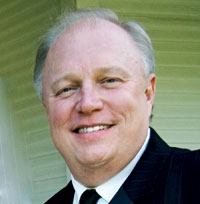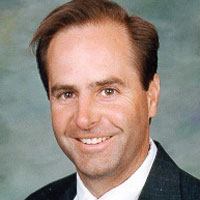NICK ORABOVIC
Questions about immigration are fraught with confusion and contradiction.
Some say undocumented workers are undermining the U.S. economy, while others insist certain labor sectors couldn’t survive without them. But with anywhere from 10- to 20 million illegal immigrants in the country today, it’s clear the issue is not going away.
“Those of us who run our companies by the book are competing with people who hire illegal aliens, pay them in cash, and don’t pay workman’s comp, liability insurance, Social Security tax or unemployment insurance,” says John Tortorella, president of J. Tortorella Swimming Pools Inc. in Southampton, N.Y. “How are we supposed to compete with that on a level playing field?”
As Pool & Spa News discussed immigration with this year’s Top Builders, a surprising variety of viewpoints and solutions emerged. Here, we examine those responses in terms of how the subject relates to the pool and spa industry.
Effects
Worries about illegal immigration tend to center around two major concerns: illegal workers filling job positions that would otherwise be filled by U.S. citizens, and the burden that undocumented immigrants place on American infrastructure, such as public schools and hospitals.
“Taxpaying citizens are paying for children of illegal immigrants to be educated in our schools,” Tortorella says. “When illegal immigrants send their kids to a local school, the tax on the house they live in — sometimes with six or seven kids — might be only $5,000 a year. But educating just one kid in this area costs about $22,000 a year.” Tortorella says he knows of a hospital nearby that racked up $3- to $4 million in uncollectible debt due to visits from illegal immigrants.
So should public resources be denied to illegals and their families? Top Builders are mixed on the answer.
“Illegal immigration is such a difficult issue to talk about,” says Debra Smith, president of Pulliam Aquatech Pools in Ft. Worth, Texas. “I know the illegal community uses up medical services and other resources, but I also understand they bring a tremendous talent to our area.”
That talent may be sorely missed if it were to disappear. Recently, the state of Georgia set stricter hiring requirements for employers and penalized people who transport or harbor illegal immigrants. As a result, farmers began suffering from labor shortages that left millions of dollars worth of crops rotting in the fields, according to a report in The Atlantic.
Many in the pool industry have noticed another problem related to illegal immigration: Most U.S. citizens are unwilling to perform the sorts of manual labor that illegal workers actively seek out. This makes it even more difficult to compete with companies that hire illegal laborers.
“If I was to put an ad in the paper looking for a manager or accountant, I’d have a hundred replies,” Tortorella says. “But if I put out an ad for a manual laborer or a pool cleaner, I’d only get about five.”
Enforcement
The contributions and costs of illegal immigrants are not the only divisive topics — questions about enforcement are every bit as challenging.
So far, efforts have been focused on patrolling U.S. borders and cross-checking workers’ documentation, such as Social Security numbers. But should more resources be spent on those techniques, or should new methods be found? Pool and spa industry members have a variety of opinions.
“Enforcement needs to start at the borders,” says Gene Ragel, Jr., general manager of Patio Pools & Spas in Tucson, Ariz. “That’s really where it all begins.”
However, some pool professionals suggest that even a heightened level of border protection may prove impractical in some areas, such as those with large ranges of sparsely inhabited land. “Texas is such a hard area in which to enforce the border, because the border itself is so huge,” says Mike Church, president of Cody Pools in Austin, Texas.
Thus, Church and others say thorough documentation checks and stringent work-eligibility requirements may prove more effective at capping the influx.
“I think making it harder and harder for them to work here is probably the correct way of enforcing it,” he says.
More controversial are bills like Arizona’s S.B. 1070. The legislation makes failure to carry immigration documents a state crime, and authorizes law enforcement officers to detain any person suspected of being in the country illegally.
Some of the bill’s harshest provisions were blocked by the Department of Justice last year, but Arizona Gov. Jan Brewer has since announced her intention to appeal to the Supreme Court. Throughout 2011, a number of other states have followed suit with bills similar to S.B. 1070.
While some in the pool industry say laws like these represent legalized racial profiling, others say such measures are merited by the severity of the issue.
“I think pulling over suspicious-looking people is probably helpful, because sometimes the efficiency of processing driver’s licenses and things like that isn’t enough,” Church says.
Others point out that U.S. citizens and other legal workers will likely feel little impact from such investigative measures.
“If I get stopped by a police officer, I’d better have my ID on me,” Smith says. “I don’t think it’s a big deal to carry your documentation with you.”
Some pool builders believe that even if all of S.B. 1070’s provisions were enacted, the impact might not be as severe as many have feared.
“I’ve got friends who are police officers, who have told me they’re not going to pull anyone over just because they look like they might be suspicious,” says Larry Duffy, president of Cameo Pools in Mesa, Ariz. “I don’t think most police officers will be driving around just looking for illegal immigrants — they’d probably consider that a waste of time.”
As far as hiring policies, builders throughout the pool industry agree that while it’s highly possible for a company to “look the other way” on the issue, it’s hard to imagine that a responsible employer could remain totally ignorant of its workers’ legal status.
“There are plenty of ways to know if an employee is falsifying documents,” Tortorella says. “If they use a false Social Security number, you’ll get notified by the Social Security administration within a month or two.”
But as Tortorella and others note, the fault may not lie with the employer in every case.
“I think if companies have knowledge of how to properly screen new hires, they should be doing that,” Ragel says. “But if an employer did its best to follow the rules, and the illegal worker has lied, the responsibility should fall on the individual who lied, not on the company.”
The future
As many states struggle with immigration enforcement, systems have been introduced to address distinct problems. Some are designed to bring foreign nationals into the U.S. for brief periods of legal labor, while others are aimed at transforming illegal immigrants into taxpaying members of their communities.
Most of these programs seem to share the common fundamental goal of differentiating workers who merely exploit the system from those who actively contribute to it.
For example, Tortorella uses the H2B visa program to bring non-immigrant workers into the U.S. legally for 10 months of the year. However, he describes the program as cumbersome and bogged down in red tape, and believes simplifying it would help.
“[H2B workers] should be able to come into the country on a three- or five-year visa,” he says, “and it should be easy for the employer to take part in the program — just one piece of paper to fill out and file.”
This would also help the government, Tortorella says, because despite the fact that H2B workers aren’t U.S. citizens, they pay taxes — unlike most illegal immigrants.
On the other hand, Duffy explains that in his area at least some undocumented workers do pay taxes, and are well-respected, contributing members of society.
“I wish … you could somehow help get citizenship for people who have been working here and paying taxes, and haven’t been trying to hide,” he says, adding that he’d have no problem vouching for undocumented workers who are viable assets to the system.
“I think that rather than looking at ‘them’ as a broad group, we should try to approach each case on an individual basis,” he says.
Duffy also acknowledges that many illegal immigrants aren’t such pillars of the community. And others, like Smith, point out that while a loosening of scrutiny might bring an influx of trainable workers, it’s also likely to invite incursions from society’s underbelly, such as members of gangs and drug cartels.
Conflicted opinions like this seem to sum up many Americans’ attitudes toward the immigration situation. Very few, it seems, would propose letting every immigrant into the country. And the idea of supporting undocumented workers’ healthcare and education with taxpayer money is a hard pill to swallow.
For the immediate future, the question of illegal immigration is unlikely to see a clean resolution.
“It’s going to continue to be a hard thing to police, like it’s always been,” Church says. “And I think it’s always going to be here, at some level.” But if the issue’s deeply nuanced nature can gain more widespread acknowledgement, perhaps progress can be made toward solutions that maintain justice and order for all involved.
What Would You Do If You Were President?
Ryder Steimle
California Pools
West Covina, Calif.
We have too many politicians and no leaders. My definition of a presidential leader is someone who has a crystal-clear vision for the future of our country and is willing to set aside his own agendas and the agendas of his party, and inspire our citizens and government to move toward that goal. The inspiration and motivation will come as the President sets the example and empowers the nation to make it happen.
Mike Moore
Morehead Pools
Shreveport, La.
Our federal government is completely dysfunctional with very little accountability. My priorities would be the economy and the protection of our borders. I would propose a constitutional amendment for a balanced budget, push for fair and balanced trade instead of free trade, and give small businesses incentives for hiring additional staff and reinvesting in their business. Border control is an essential part of our national security, along with enhanced intelligence cooperation and expanding security laws, such as the Patriot Act. I would work tirelessly with my Cabinet and Congressional leaders to improve all of these areas and much more.
Brett MacNally
Performance Pool & Spa
Woodbury, Minn.
Government is broken — and we need less government in our lives. The great people of this country have known and continue to know how best to run it. Leave them alone and let them prosper. The government should build roads, keep us safe and protect us. There are places for regulation, I understand — but past that, get out of it.
MORE INFORMATION
- Top 50 Builders Chart (PDF)
See the firms who made it on the list this year.
- What Would You Do: Drain-Cover Recall
Top 50 Builders share how they would have addressed a recent and far-reaching product recall.
- What Would You Do: Economy
Some of the nation’s top pool builders explain how they’d turn around the country’s financial fortunes.







